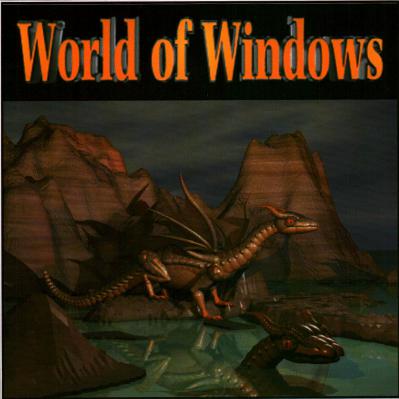Navigating The World Of Windows PC Game ROMs: A Comprehensive Guide
Navigating the World of Windows PC Game ROMs: A Comprehensive Guide
Related Articles: Navigating the World of Windows PC Game ROMs: A Comprehensive Guide
Introduction
With great pleasure, we will explore the intriguing topic related to Navigating the World of Windows PC Game ROMs: A Comprehensive Guide. Let’s weave interesting information and offer fresh perspectives to the readers.
Table of Content
Navigating the World of Windows PC Game ROMs: A Comprehensive Guide

The realm of digital gaming has evolved significantly over the years, with modern titles pushing the boundaries of graphical fidelity and immersive experiences. However, a strong sense of nostalgia often draws gamers back to the golden age of PC gaming, where classic titles captivated audiences with their unique charm and innovative gameplay mechanics. For those seeking to revisit these beloved games, the world of ROMs (Read-Only Memory) offers a gateway to a bygone era.
This article aims to provide a comprehensive understanding of Windows PC game ROMs, explaining their purpose, legality, and the various methods of accessing and enjoying them. We will delve into the intricacies of ROM files, exploring their technical aspects and the ethical considerations surrounding their use.
Understanding ROM Files: A Digital Time Capsule
A ROM file, in essence, is a digital replica of a game’s original storage medium, often a floppy disk, CD-ROM, or cartridge. It encapsulates all the necessary data for the game to function, including the program code, graphics, sound, and game data.
How ROMs Work: A Technical Breakdown
When a ROM file is loaded, the game’s data is transferred into the computer’s memory, allowing the game to run as if it were loaded from the original physical medium. This process involves emulators, specialized software programs designed to mimic the hardware and software environments of the original gaming platforms.
The Importance of Emulators: Bridging the Gap
Emulators play a crucial role in enabling ROMs to function. They essentially create a virtual environment that replicates the hardware and software of the original gaming platform. For instance, an emulator designed for a Super Nintendo Entertainment System (SNES) will emulate the SNES hardware, allowing games designed for the SNES to run on a modern computer.
The Legal Landscape of ROMs: A Complex Terrain
The legality of ROMs is a complex and often debated topic. While creating and distributing ROMs of copyrighted games is generally considered illegal, the legal status of possessing and using ROMs for personal use is less clear-cut.
Copyright Considerations: Navigating the Legal Maze
The legal status of ROMs is largely dictated by copyright law. In most countries, copyright protects the intellectual property of game developers, including the game’s code, graphics, and sound. Distributing copyrighted materials without permission from the copyright holder is generally considered illegal.
Fair Use Doctrine: A Potential Exception
The "fair use" doctrine, which allows limited use of copyrighted materials for purposes such as criticism, commentary, news reporting, teaching, scholarship, and research, may apply in certain cases. However, the application of fair use is highly case-specific and subject to interpretation.
Ethical Considerations: Respecting the Creators
Beyond legal considerations, ethical considerations also play a role in the discussion of ROMs. Many argue that using ROMs without supporting the original developers undermines their efforts and devalues their creative work.
Alternative Approaches: Supporting the Industry
For those seeking to enjoy classic games ethically, several alternative approaches exist:
- Purchasing Digital Copies: Many classic PC games are now available for purchase digitally through online platforms like Steam, GOG.com, and Humble Bundle. This allows gamers to legally acquire and support the developers.
- Supporting Game Preservation Efforts: Organizations dedicated to preserving classic games, such as the Internet Archive, offer legal access to a wide range of games, often with historical context and information.
- Using Abandonware: Games that are no longer commercially available and whose copyright has expired are often considered "abandonware." While the legal status of abandonware is still debated, it is generally accepted that distributing such games is not illegal.
Accessing and Using ROMs: A Practical Guide
For those interested in exploring the world of ROMs, several resources and methods are available:
- Online ROM Websites: Numerous websites dedicated to hosting ROMs exist, though it is important to note that these websites may not be legal in all jurisdictions.
- Emulator Websites: Websites dedicated to emulators offer a wide range of software options for various platforms.
- ROM Packs: Some websites offer pre-compiled packages containing multiple ROMs, often organized by platform or genre.
Tips for Safe and Responsible ROM Use:
- Source ROMs from Reputable Websites: Be cautious of websites that offer ROMs for download, as some may contain malware or viruses.
- Use Antivirus Software: Always ensure that your computer is protected with up-to-date antivirus software.
- Back Up Your Data: Before using any ROMs, back up your computer’s data to prevent potential data loss.
- Be Aware of Legal Risks: Understand the legal risks associated with downloading and using ROMs.
FAQs Regarding Windows PC Game ROMs:
Q: Are ROMs legal?
A: The legality of ROMs is a complex issue with no definitive answer. While creating and distributing copyrighted ROMs is generally illegal, the legal status of possessing and using ROMs for personal use is less clear-cut.
Q: Can I play ROMs on any computer?
A: No, you need a compatible emulator for the specific gaming platform you want to emulate. For instance, to play Super Nintendo games, you need an SNES emulator.
Q: Where can I find ROMs?
A: Numerous websites offer ROMs for download, but be cautious of their legitimacy and potential risks.
Q: Are ROMs safe?
A: ROMs themselves are generally safe, but some websites offering downloads may contain malware or viruses. It is important to use reputable sources and antivirus software.
Q: What are the benefits of using ROMs?
A: ROMs allow gamers to revisit classic games, often with improved performance and compatibility on modern computers.
Q: What are the drawbacks of using ROMs?
A: The legality of ROMs is a complex issue, and using them may violate copyright laws. Additionally, some ROMs may contain bugs or glitches that were not present in the original game.
Conclusion: Preserving the Past, Embracing the Future
Windows PC game ROMs offer a unique window into the past, allowing gamers to experience the joy and nostalgia of classic titles. However, it is crucial to approach the use of ROMs with awareness of the legal and ethical considerations involved. By understanding the complexities surrounding ROMs and exploring alternative methods of supporting game developers and preservation efforts, gamers can enjoy the best of both worlds: the nostalgic charm of classic games and the ethical responsibility of supporting the industry that continues to create immersive and innovative gaming experiences.







Closure
Thus, we hope this article has provided valuable insights into Navigating the World of Windows PC Game ROMs: A Comprehensive Guide. We thank you for taking the time to read this article. See you in our next article!